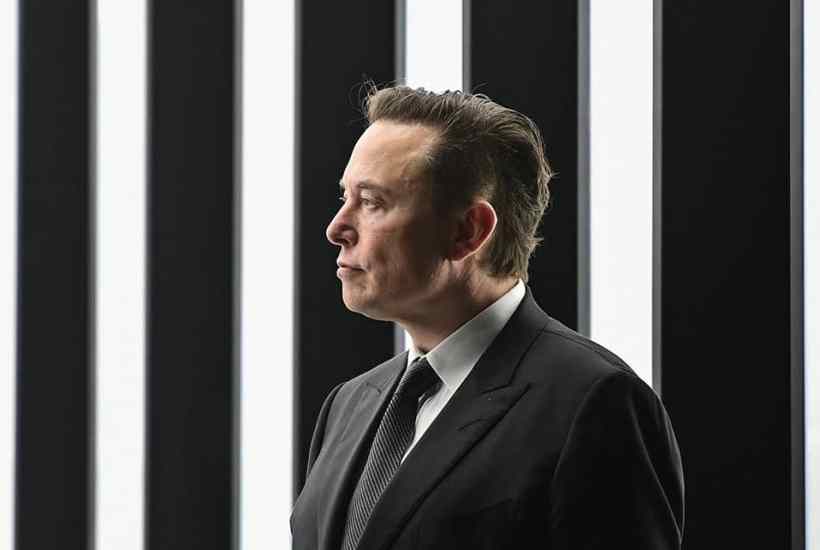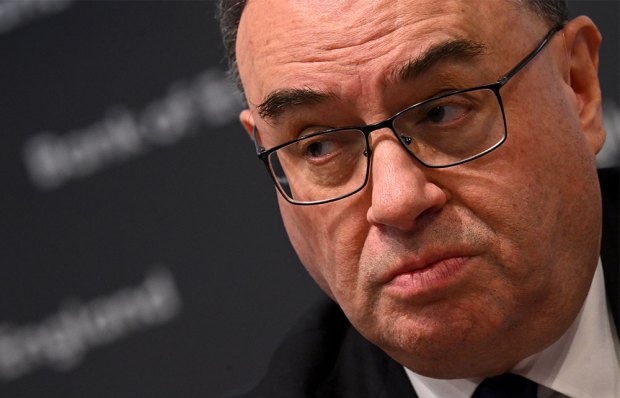I spent Easter agonising over whether to throw the considerable weight of this column behind Elon Musk’s maverick $43 billion bid for Twitter. One thing I didn’t do, however, was consult the multitude of opinions on the matter available via Twitter itself, because I’m afraid I regard it as a satanic cacophony of misinformation and vanity. If that puts me in the position of the late-15th-century scholar who said ‘Printing presses? Pah! The only news I trust is handwritten by monks’, so be it. But when I read Musk’s claim that ‘civilisational risk’ would be decreased by his sole ownership of the ubiquitous microblogging site, I laughed out loud.
Not that I think Musk a fool. On the contrary, his leadership of Tesla since he bought into the fledgling electric car company in 2004 really has contributed to civilisation, in the sense that it has pioneered the global automotive industry’s post-carbon transition. And despite a notably loose grasp of corporate governance and an extraordinarily lucky ride on a tech-crazy stock market, he’s a pretty shrewd financier.
But he’s also, frankly, a bit bonkers: obsessed with dreams of building cities on Mars; prone to public weed-smoking and strangely inarticulate interviews; deluded, we might suspect, by the adulation of a vast army of online admirers. His Twitter bid may not even be serious: there’s no indication how he’d finance it, the market hasn’t embraced it – and neither, in conclusion, will this column. Keep your wandering focus firmly on Tesla, Mr Musk.
Virtuoso investor
The contrarian New York investor John Paulson will go down in history as one of the monsters of the 2008 financial crisis, having earned $4 billion out of others’ folly by betting that the US mortgage-backed securities market would implode. His fortunes since then have been more mixed. But he did one good thing for the world in 2013 when he bought – for half a billion dollars, outbidding the private equity firm Kohlberg – the Steinway piano company, whose concert grands, built in Hamburg and the New York borough of Queens, have been favoured by virtuosi from Rachmaninoff to Brendel and are unmatched in craftsmanship by any Chinese rip-off factory: even Lang Lang prefers Steinways.
Founded by a German immigrant in 1853, Steinway passed out of family ownership and was listed on the New York stock exchange before Paulson took it private again. His investment came with a sentimental spin – his sisters were pianists and his Ecuadorian–born father could not afford a Steinway for them – but also with his characteristic nose for value. In 2018 there were rumours he might sell to Poly Group, a Chinese conglomerate with military links; he didn’t, but now he’s planning to refloat the company with a billion-plus valuation while retaining control and taking the game to China by exploiting Steinway’s luxury-brand status to sell lots more pianos there: contrarian thinking in a more admirable form.
City princelings
My starting salary as a graduate trainee at a posh merchant bank in 1976 was £2,800 a year, equivalent to three-quarters of average male pay at that time and to £22,000 in today’s money. This year, I read, entry-level bankers can expect £63,000 before bonuses, which is double average UK pay and makes them three times more valued than I was. In another part of the City, newly qualified solicitors (usually two years out of university) in ‘magic circle’ law firms such as Freshfields are offered up to £125,000, likewise a multiple of previous generations’ rewards.
From airlines to abattoirs, every corner of the employment market is afflicted by shortages of labour, skilled or unskilled. It’s surely to the good of the UK economy, in which financial and professional services count for so much, that City employers are paying up for talent that might otherwise go elsewhere. This scramble to attract the best is, after all, a reflection of the confidence of the firms concerned, and we might also see it as a welcome turnaround from post-2008, when private-sector graduate recruitment withered and many bright youngsters fell back on civil service drudgery, precarious start-ups or barista work. Now the pendulum of capitalism has swung and – as real incomes beyond the City shrink under an onslaught of inflation and tax – these pampered princelings and princesses may prefer another autumn and winter of working from home, rather than running a gauntlet of furious protestors outside their marbled office-palaces.
Bookshop resistance
Senior departures at Blackwell’s, the Oxford-based bookshop chain that includes Heffers of Cambridge, follow its takeover in late February by Waterstones – which already has Foyles, Hatchards and numerous other acquisitions under its belt, with the backing of a deep-pocketed investor called Elliott Advisers, and is run by James Daunt, who has six eponymous bookshops of his own. That might look like over–consolidation were it not for the relentless advance of Amazon, deploying ultra-low overheads and shameless tax policies to lay waste to the brave resistance of physical bookselling.
Online sales now account for more than half the UK book market, but Waterstones’ fightback – with 1,000 independent sellers in support – continues to remind us of the pleasure of handling printed works before buying. Now the pandemic ‘streaming boom’ is over (UK households reportedly cancelled 1.5 million video subscriptions in the first quarter) and the cost of living is rocketing, we’ve all got more time for reading and less cash for going out; a good book is surely a better use for a tenner that barely buys you a gin and tonic. Just don’t fall into the customer habit that so irritated the shop owner Shaun Bythell of Wigtown in Scotland, in his charming Diary of a Bookseller, of browsing at length, then ordering the chosen book cheaper from Amazon on your phone before you’ve even left the premises.
Got something to add? Join the discussion and comment below.
Get 10 issues for just $10
Subscribe to The Spectator Australia today for the next 10 magazine issues, plus full online access, for just $10.
You might disagree with half of it, but you’ll enjoy reading all of it. Try your first month for free, then just $2 a week for the remainder of your first year.















Comments
Don't miss out
Join the conversation with other Spectator Australia readers. Subscribe to leave a comment.
SUBSCRIBEAlready a subscriber? Log in